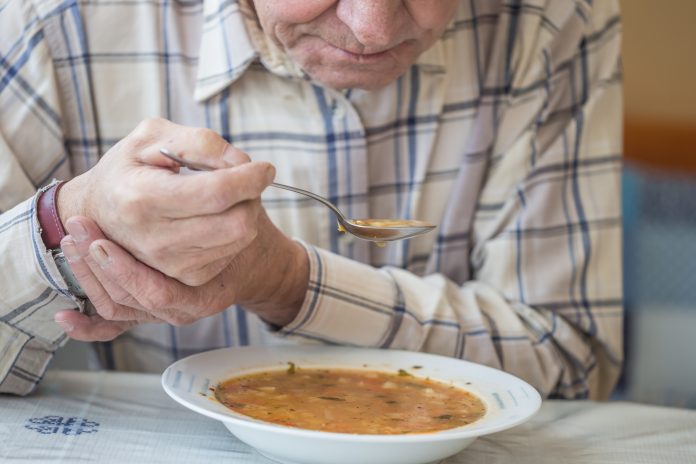
A single fecal microbiota transplant (FMT) induced mild, but long-lasting beneficial effects on motor symptoms in patients with early-stage Parkinson’s disease (PD) in a small clinical study by Belgian researchers. About 20 people received the treatment, and their motor score improved by a mean of 5.8 points over a year.
This research was published in eClinicalMedicine. The lead author is Arnout Bruggeman of the University of Ghent.
PD is a neurodegenerative disorder estimated by WHO to affect about 20M worldwide and to be steadily increasing in prevalence. Symptoms include motor effects, such as balance problems, stiffness, and tremor. There are also non-motor symptoms, including loss of smell, constipation, and REM sleep disturbances.
In PD the alpha-synuclein protein misfolds and clumps together. Those clumps then damage dopamine-producing nerve cells in the brain, which leads to the typical Parkinson’s symptoms. There is no cure for Parkinson disease, but therapies including medicines, surgery and rehabilitation can reduce symptoms. Levodopa/carbidopa, which increases the amount of dopamine in the brain, is the most common treatment for PD, but it has side effects and may not help as the disease progresses.
The alpha-synuclein protein clumps are believed to be formed in the gut wall at a very early stage of the disease and reach the brain cells via the vagus nerve, which connects the gut and the brain. A growing body of research suggests this process can be influenced by gut bacteria. Notably, patients with PD often have an altered gut microbiome compared to healthy individuals and may show more (intestinal) inflammation and a disrupted intestinal barrier.
For this study, the neurology department at University Hospital Ghent, led by Patrick Santens, collaborated with Debby Laukens of Ghent University and Roosmarijn Vandenbroucke’s group at the VIB-UGent Center for Inflammation Research.
The GUT-PARFECT study recruited participants with early-stage PD and healthy donors who donated their stool to Ghent University’s Gentse Stoelgangbank. Participants with PD received the stool transplant through a nasal tube that went into the small intestine.
“Our results are really encouraging! After twelve months, participants who received the healthy donor stool transplant showed a significant improvement in their motor score, the most important measure for Parkinson’s symptoms.” says Bruggeman.
The improvement in motor symptoms became even more pronounced between the sixth and twelfth month after the transplant, suggesting a potential long-lasting effect. Additionally, participants had less constipation, a frequent and bothersome symptom for many people with Parkinson’s disease.
“Our study provides promising hints that FMT can be a valuable new treatment for Parkinson’s disease. More research is needed, but it offers a potentially safe, effective, and cost-effective way to improve symptoms and quality of life for millions of people with Parkinson’s disease worldwide,” says Vandenbroucke, a co-senior author.
“Our next step is now to obtain funding to try to determine which bacteria have a positive influence. This could lead to the development of a ‘bacterial pill’ or other targeted therapy that could replace FMT in the future,” says Laukens.













